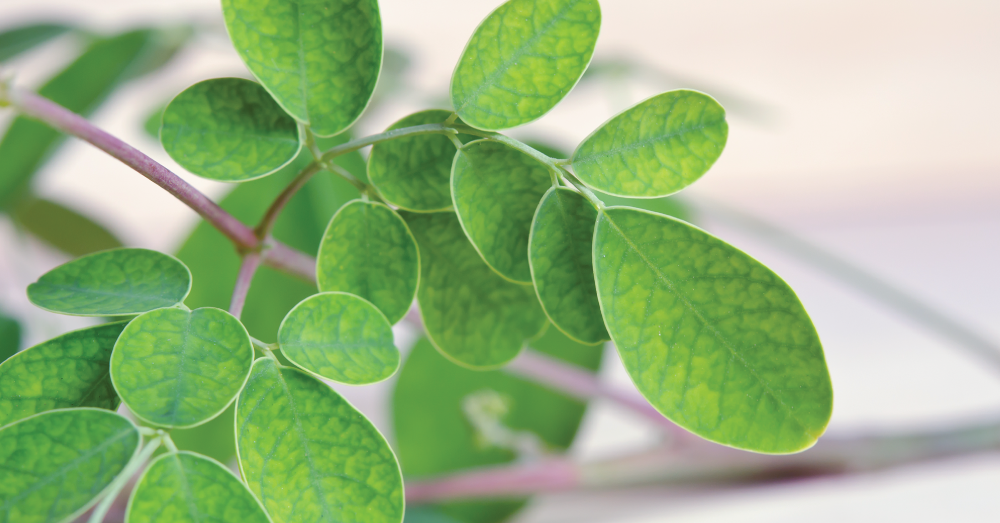
How to Grow Moringa
Moringa is an incredibly nutrient-rich plant touted as a superfood due to its many health benefits. Its small, rounded leaves are packed with significant amounts of nutrition: beta carotene, calcium, magnesium, potassium, protein and vitamin C, to name a few. You name it, moringa's got it. Because moringa grows easily and rapidly and can survive with very little water, it is particularly appealing and useful to people living in areas plagued by drought.
December 22, 2017 | Source: Mercola.com | by Dr. Joseph Mercola
Moringa is an incredibly nutrient-rich plant touted as a superfood due to its many health benefits. Its small, rounded leaves are packed with significant amounts of nutrition: beta carotene, calcium, magnesium, potassium, protein and vitamin C, to name a few. You name it, moringa’s got it. Because moringa grows easily and rapidly and can survive with very little water, it is particularly appealing and useful to people living in areas plagued by drought.
In some cases, moringa is the most nutritious food available, especially in remote, impoverished areas across Africa and India, where it can be harvested year-round. I tried cultivating moringa for about two years, and felt it to be more trouble than it was worth. Moringa does grow quickly, but I found the tiny leaves to be difficult to harvest and use. Your experience may be different, however.
Due to moringa’s impressive nutritional profile and health benefits it seems unfair for me to unilaterally discourage you from trying your hand at cultivating it. For that reason, I would like to provide you with all the information you need to grow moringa. Since there’s no denying moringa is a powerhouse once it’s harvested, you might just want to give it a try.
The History of Moringa
Moringa (Moringa oleifera), also known as the “miracle tree” or “tree of life,” is the only genus in the family Moringaceae. Moringa originated in Northern India, where it has been used as a medicinal herb for thousands of years. In Ayurvedic medicine, moringa is thought to be useful in preventing 300 diseases.1 Globally, India is the largest producer and supplier of moringa, accounting for about 80 percent of worldwide demand.2
Since its advent in India, the moringa tree gradually appeared elsewhere in Asia, as well as in Africa. Because it thrives in semiarid, tropical and subtropical areas, moringa is now found in tropical zones in Africa, Asia, the Caribbean and Pacific islands and South America. In ancient times, Egyptians, Greeks and Romans used the oil extracted from the moringa tree in medicine, perfume and oils.
Common English names for moringa include ben oil or benzoil tree, drumstick tree and horseradish tree (due to moringa having a taste similar to horseradish). Notably, due to their ability to act as a coagulant and antimicrobial agent, moringa seeds have long been used for water purification in Africa and Central and South America.3
Why Is Moringa Considered a Superfood?
While some foods don’t live up to their billing as superfoods — beans for example, due to their toxic lectin content — moringa is a superfood superstar! Why? Because this fast-growing tree is packed with antioxidants, anti-inflammatories and essential vitamins and minerals galore. According to the U.S. Department of Agriculture, 1 cup (21 grams) of fresh, chopped moringa leaves (also known as “drumsticks”) contains a good deal of your recommended dietary allowance (RDA) for key nutrients, such as:4,5
|
Iron: 11 percent of your RDA |
|
Magnesium: 8 percent of your RDA |
|
Protein: 2 grams |
|
Riboflavin (B2): 11 percent of your RDA |
|
Vitamin A (from beta carotene): 9 percent of your RDA |
|
Vitamin B6: 19 percent of your RDA |
|
Vitamin C: 12 percent of your RDA |
Although it is unlikely you would eat such a large portion of moringa in one sitting, when compared to other nutrient-rich foods by weight, 100 g of dried moringa boasts:6
- 30 times more magnesium than eggs
- 17 times more calcium than milk
- 15 times more potassium than bananas
- 12 times more vitamin C than oranges
- 10 times more vitamin A than carrots
Moringa is rich in vitamins A, B, C, D and E, as well as minerals such as calcium, copper, iron, magnesium, phosphorus, potassium, iron and silica. It also contains alpha-linolenic acid, a plant-based omega-3 fat, and all of the essential amino acids your body needs to thrive. Authors of 2012 research about the health benefits of moringa said:7
“Moringa oleifera contains essential amino acids, carotenoids in leaves and components with nutraceutical properties, supporting the idea of using this plant as a nutritional supplement or constituent in food preparation … An important factor that accounts for the medicinal uses of Moringa oleifera is its very wide range of vital antioxidants, antibiotics and nutrients, including vitamins and minerals. Almost all parts from [the] moringa [tree] can be used as a source for nutrition.”
